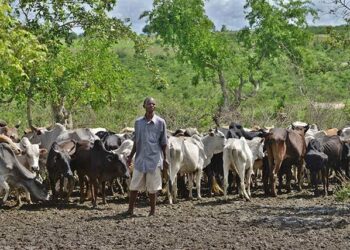Public criticism has surged following Tuesday’s announcement of the new Ministry of Livestock Development. The announcement, made during the inauguration of the Presidential Committee on Livestock Reforms at the Council Chamber in the State House, Abuja, has ignited debates across social media platforms. Many are criticizing the government for misplaced priorities and escalating the cost of governance.
Despite the backlash, the president defended the new ministry as a crucial initiative to address clashes between herders and farmers and to strengthen the livestock and dairy industries. He emphasized that the committee would collaborate closely with the Federal Ministry of Agriculture and Food Security to develop lasting solutions to the long-standing conflicts. He also assured that the Federal Government would cover the cost of acquiring land to facilitate coexistence between herders and farmers.

Nevertheless, Netizens argue that the new ministry is a strategy to serve self-interests within the government amidst calls to reduce governance cost. They contend that the Ministry of Livestock Development duplicates the functions of an existing department under the Ministry of Agriculture, unnecessarily increasing governmental expenses.
Public sentiment on social media reflects widespread discontent and criticism of the presidency’s perceived indifference to the needs of ordinary Nigerians.
– A Facebook user commented, “This is purely political and has nothing to do with the economy. Now it doesn’t matter how many ministries you have, what matters is giving them targets and monitoring their performance.”
– Another user questioned, “What is livestock, and what is agriculture? When will we have a Ministry of Kerosene?”
– An X user remarked, “Nooo… Livestock is already covered under the Ministry of Agriculture. This new ministry is for cows. In fact, it should read, ‘Federal Ministry of Cows Development.'”
Bottom Line:
While the creation of the Ministry of Livestock Development aims to address critical issues between herders and farmers, it faces scrutiny for potentially increasing the cost of governance by duplicating existing functions within the Ministry of Agriculture. The public’s mixed reactions highlight the need for careful consideration of the economic impact and effectiveness of such structural changes in government.

















